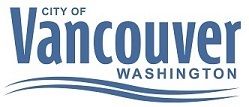| | | | | | | |  | Item #3.
|
|
| | | | | | | | | TO: |
|
| Mayor and City Council |
|
|
|
| | FROM: |
|
| Eric Holmes, City Manager |
|
|
|
| | DATE: |
|
| 7/18/2022 |
|
|
|
|
|
|
|
| SUBJECT
|
|
| Amendments to VMC 8.22 - Camping
|
|
| | | | | | | | Key Points
|
- Staff is proposing amendments to VMC 8.22 to address additional impacts of homelessness.
- One proposed amendment changes the chapter name of VMC 8.22 from “Camping” to “Outside Habitation and Camping” to better reflect that the behaviors covered by the chapter are primarily associated with individuals experiencing homelessness and their attempts to shelter themselves from the elements.
- Another proposed amendment designates additional areas as Camping and Outside Habitation Impact Areas, with the same limitations on camping that already exist in the established Camping and Outside Habitation Areas, with the purpose of protecting all Vancouver residents from the danger posed by wildland fire.
|
|
| | | | | | | | | Strategic Plan Alignment | Goal 2: Provide effective, innovative, and well-resourced police, fire, and emergency medical services
Objective 3.2: Improve services available to underserved or vulnerable residents
Goal 4: Ensure that Vancouver’s parks and trails system is the highest quality and most complete in the region
|
|
| | | | | | | | | Present Situation | In September 2021, Council approved amendments to VMC 8.22 to support the establishment of the Safe Stay Communities by further specifying times during which it is unlawful to camp or occupy camping facilities in publicly owned places. At the time Council was told that their action preserved the broadest range of policy options for the Council’s future consideration relative to public camping. At this time, staff are suggesting additional amendments to Chapter 8.22 to further address the broader impacts of homelessness.
One issue of great concern to both individuals experiencing homelessness and the greater Vancouver community is the danger posed by fire. The Vancouver Fire Department has observed a substantial increase in the amount of outside fire ignitions over the last several years, an increase of almost 600% since 2016. The Burnt Bridge Creek drainage is particularly vulnerable to a dangerous wildfire event. The area would fit the parameters of what is commonly understood as the wildland urban interface. Heavy vegetation, limited access, and limited water supply with residences in proximity, all contributes to a potentially serious wildfire condition that could endanger life and property. The steep slopes coupled with the usual afternoon onshore winds, has the potential to allow an uncontrolled wildfire to not only threaten the lives of anyone recreating or residing in the canyon, but could also damage or destroy homes adjacent to the Burnt Bridge Creek trail system. Figures 8.22-1 and 8.22-2 of the Ordinance are maps showing the proposed additional Camping and Outside Habitation Impact Areas.
These new additions would have the same limitations that already exist in the established Camping and Outside Habitation Impact Areas.
|
|
| | | | | | | | | Advantage(s) |
- Protects public and private property from danger of wildland fire
- Protects unhoused community from danger of wildland fire
|
|
| | | | | | | | | Disadvantage(s) | Further limitation of where individuals experiencing homelessness can be within the City of Vancouver.
|
|
| | | | | | | | Prior Council Review
| Council was sent a memo as part of the June 6th Council packet explaining these proposed amendments, the rationale behind them, and the role of HART in reducing the risk of fire by engaging with individuals experiencing homelessness throughout the City, including within the Burnt Bridge Creek drainage, monitoring unsanctioned encampments for health and safety issues, and removal of encampments located within designated Fire Impact Areas.
|
|
| | | | | | | | | Action Requested | On July 18, 2022, subject to second reading and public hearing, approve the ordinance.
Aaron Lande, Program and Policy Development Manager, 360-487-8612
|
|
|